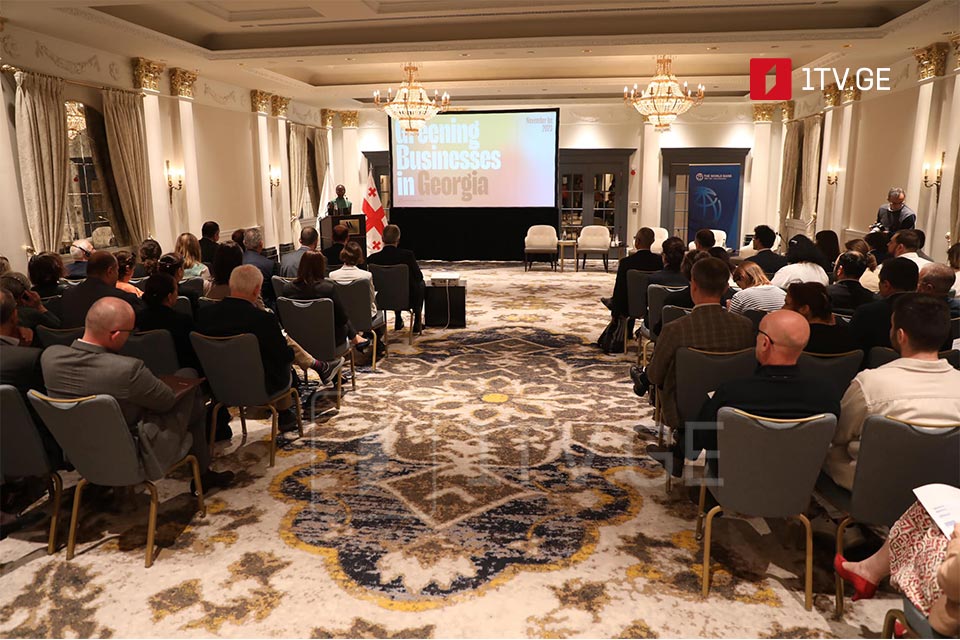The World Bank presented a new report titled Greening Businesses in Georgia at the Tbilisi Marriott Hotel. The authors of the report elaborate it will assist the policy-makers, companies and other interested stakeholders to make energy efficiency a priority and invest in this direction.
Rolande Pryce, the World Bank Regional Director for the South Caucasus, opened the event.
“The report’s main finding is to try to understand how the private sector can become a force to reduce emissions in Georgia. In the last 15 years, the Georgia economy has grown a lot, and with that emission has grown. So the private sector contributed a lot to this increasing emission. The report tries to identify what is the opportunity for the private sector to become cleaner. We have important results. I think, this is the most important result of the study, which suggests that by improving energy efficiency in a modest way to the level of the median firm in every sector, you could save about 50% in terms of energy consumption, and that means more than 50% in terms of emissions.
So it is a big opportunity to adopt new and more efficient technology, way to produce and this can generate big gains for the entire society. But also, it generates gains for the company, because by saving energy the companies become more efficient and reduce costs, and also improve profits. So the message of the report is that there is an opportunity to do good and reduce emissions while becoming more efficient, but also become more profitable. It’s a win-win solution for the company. Now, why the company are not doing it? We see two main values, one is about knowledge, awareness, information, and organization of the companies, so adopting more green practices.
Did it widen finance and its investments in machinery and technology and upgrades, what is being used for production, to become efficient? So, we see these two main values that would need to be addressed to make a company more efficient, reduce energy consumption, and then reduce emissions,” said Leonardo Iacovone, the WB’s Lead Economist in the Trade, Investment and Competitiveness (TIC).
